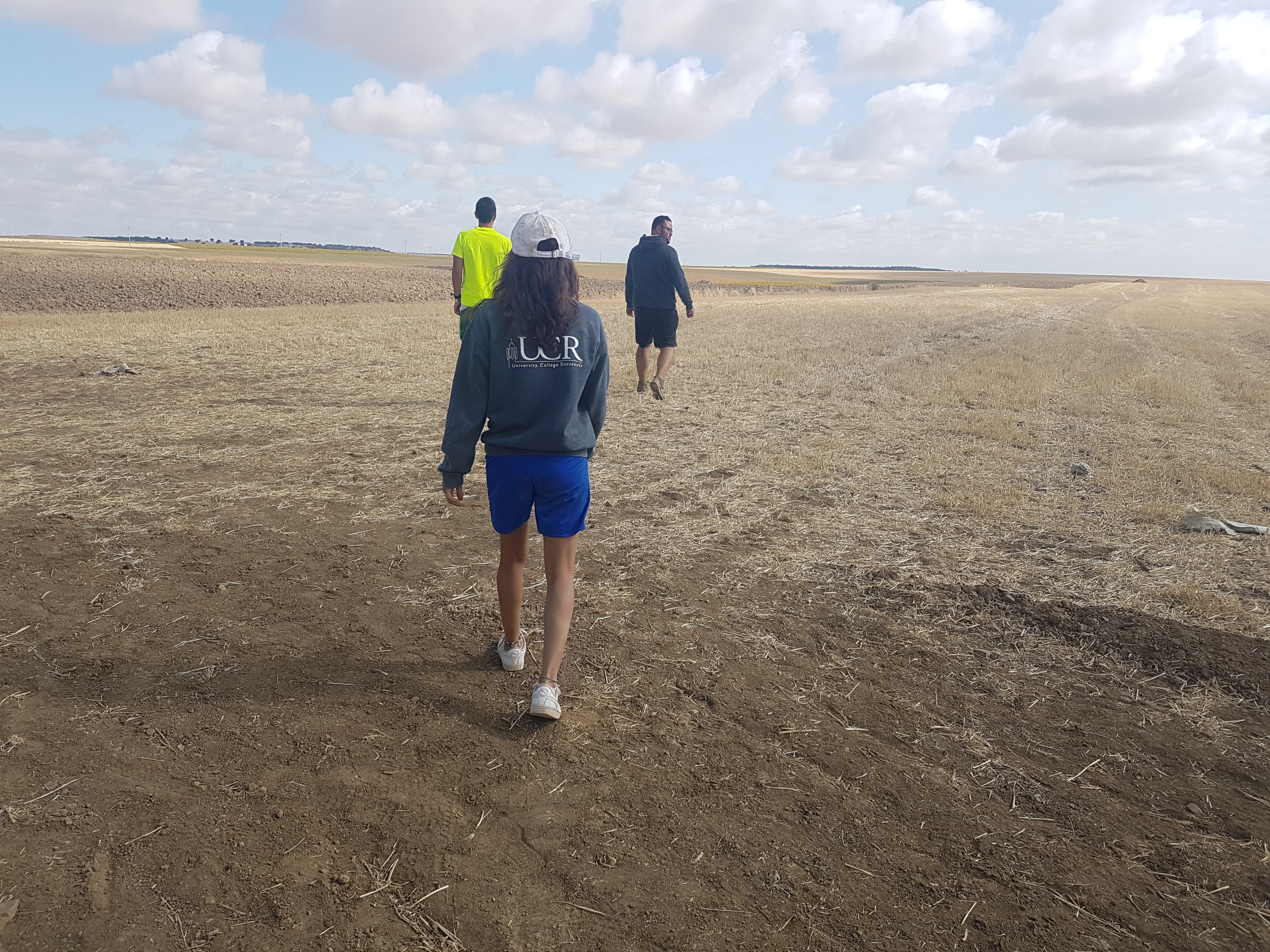Edited by Anja Herrmann
While catching up on lost sleep was on top of this summer’s agenda for most people, UCR students will always have additional activities up their sleeve. On my quest to find these stories, I have heard about visits to a wide array of countries rich in history, attempts to finally tan, and even a story about getting stuck in Antwerp for 8 hours because the car motor was overheated (although that was not part of the summer plan). During the summer months, the UCR Facebook page has already captured some of these stories, such as Tallie Nikitchyuk and her teaching experience, and Pre-Med student Elseline Smith on assisting a specialist pulmonologist on the rare lung disease PAP (protein alveolar proteinosis). But there is more to these stories already shared, and other unheard tales that our students have yet to tell. In this article, we will find out about Demi de Randamie and the challenges she encountered as a camp counselor, Sanne Rossel on excavating a pre-Roman city in Spain, about Andrea Undecimo on the Going Glocal program and finally, Ruben van den Akker’s experience interning and studying in the United States.
Enjoy ~
Demi de Randamie on working as a camp counselor
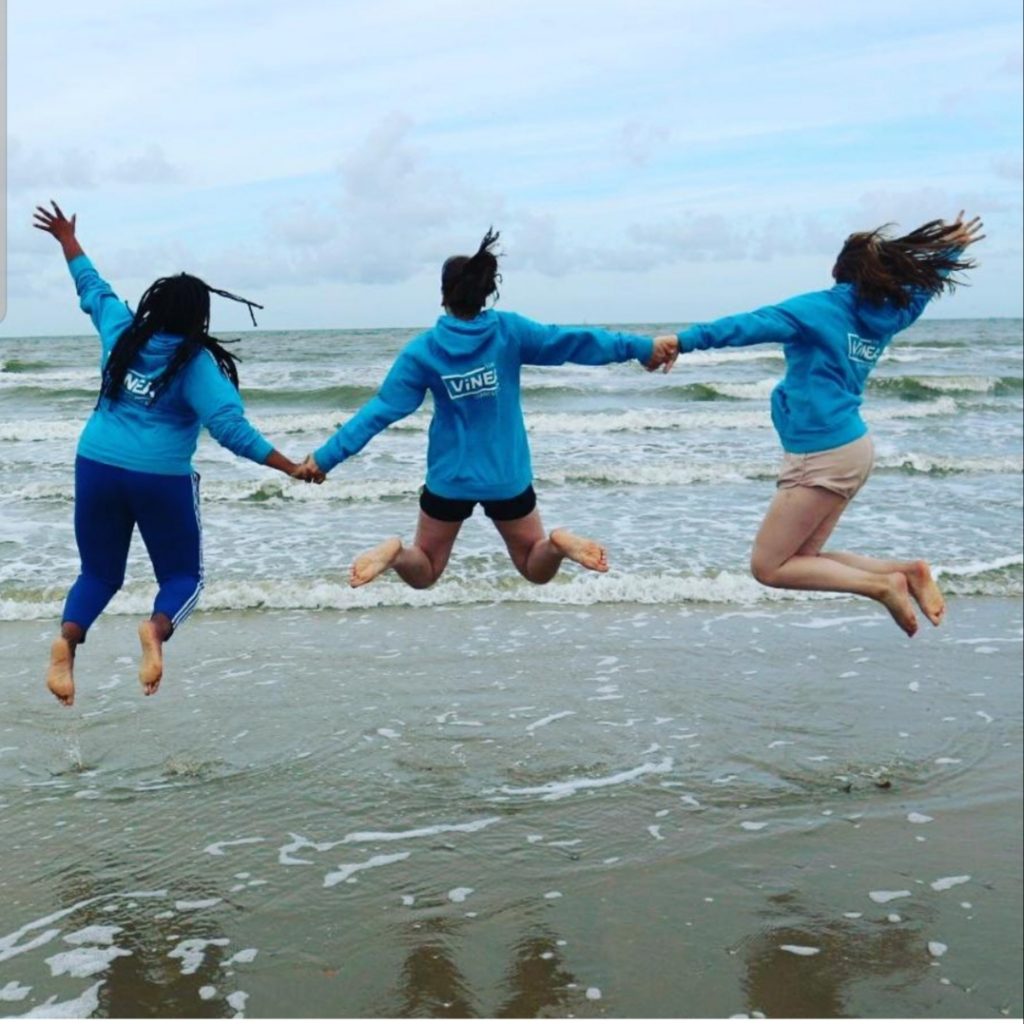
What did you do over the summer?
During the summer, I worked as a camp counselor for Vinea. Vinea is a traveling agency for kids and rated the best at its job in the Netherlands. The company provides summer camps for Dutch children in the Netherlands and throughout Europe. The camps are basically designed with specific interests of children in mind. They have specialized activities ranging from surf camp to robotics camp and a Europe travel camp. My job was to arrange everything with a team of other camp counselors. We organised room assignments, the cooking, and also got the opportunity to play games with the kids themselves. I also had to make a schedule for the week, but some activities were already planned ahead of time. I was personally assigned to do “tina beachcamp” and “tina forestcamp” this summer. These are camps based on a magazine (called tina) for tweens. Even though both camps had very different activities (one had a fashion show and the other one had graffiti), they are based on the same magazine.
What did it teach you?
This is my 3rd year working for the company, but I still managed to learn a great deal. My first year at UCR taught me a certain level of independence that I took with me to camp and I feel like it showed I would say that this job has taught me a lot about the mental and physical development of children as well as my own (which is very useful for UCR)! The camp definitely improved my communication, leadership and planning skills. This year specifically, I learned a lot more about first aid and fixing things on the spot. There were also some children with minor mental disorders this year so I gained more experience on how to aid them in social interaction.
How did you come across this opportunity?
When I was a kid, I went to these summer camps for about 6 years in a row. When I turned 17 they sent me an email, asking if I wanted to be a camp counselor. So I did the training and 3 years later, I am still here.
Would you recommend it to others?
Yes, I really would! You really grow a lot as a person and you make great friendships with other counselors. It is really exhausting, of course, but it is really fulfilling! You should consider that it is a volunteering job but hey, so is Elliott 🙂
Demi de Randamie, class of 2021, is a major in Psychology, Sociology and Statistics, from Rotterdam, the Netherlands.
Sanne Rossel on excavating in Spain
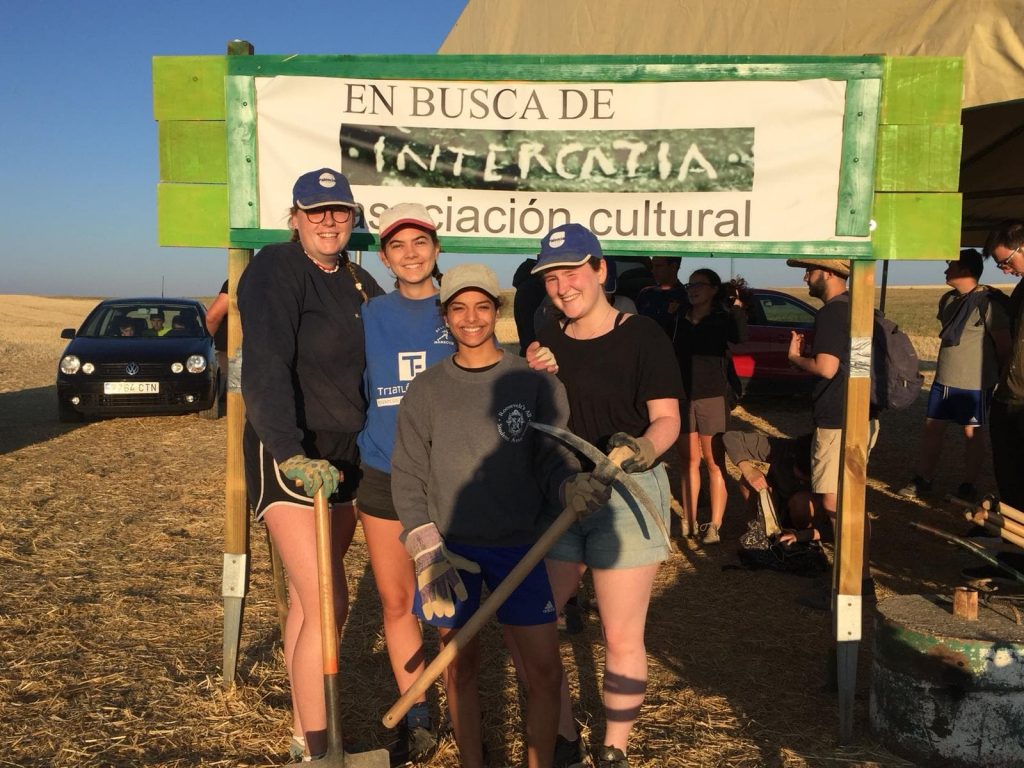
What did you do over the summer?
Over the summer I went to a small village in Spain, called Paredes de Nava. There, I met up with three other (former) UCR students: Sanne van Veen, Yolande Hobbs and Esther van Trierum. For two weeks, together with 20 Spanish students from all over the country, we volunteered with the group ‘En Busca de Intercatia’, an archeological cultural association that is currently in the process of excavating a pre-Roman city. We slept in the atrium of the local pre-school in bunk beds, showered at the local swimming pool (until we discovered there were showers in the kitchen), and had meals that were freshly prepared by the local chef each day.
What did it teach you and what was your experience?
During the week we would spend half of the day digging at the sites, and half of the day doing activities. Sometimes it was more work, such as cleaning and categorising findings, and other days it was a treasure hunt or playing laser tag. Neither Sanne, Esther or I spoke proper Spanish, so that proved to be a challenge at times. The work was quite tough, as it often consisted of pickaxing in 30°C weather, but really rewarding at the same time. The most common finds were Roman bricks and roof tiles, animal bones and pieces of pottery. I can tell you right now that there is nothing more frustrating than spending 20 minutes trying to get a piece of pottery out of the ground in once piece, only for it to be labelled “flying pottery” by the archaeologists – this means that it is not worth collecting and should therefore be thrown as far away as possible. Although the experience was intense, I am really happy that I decided to do it. I’ve learned all the Spanish I’ll ever need to know (archaeological terms and swear words), discovered a love for pickaxing, and experienced the Spanishest of cultures first hand. Before I go back next year, I’ll have to work on my dancing skills though: it seems my Dutch air-fist-pumping does not work well with Bachata music.
How did you come across the opportunity and would you recommend it to others?
I came across it because Yoyo invited me to come along, since she knew I liked archaeology! I would definitely recommend it to others because it’s a very unique experience.
Sanne Rossel, class of 2021, is an Antiquity, Art history and philosophy major and Anthropology minor, from Gouda, Netherlands
Andrea Undecimo on the Going Glocal Program
In collaboration with Alisa Adams
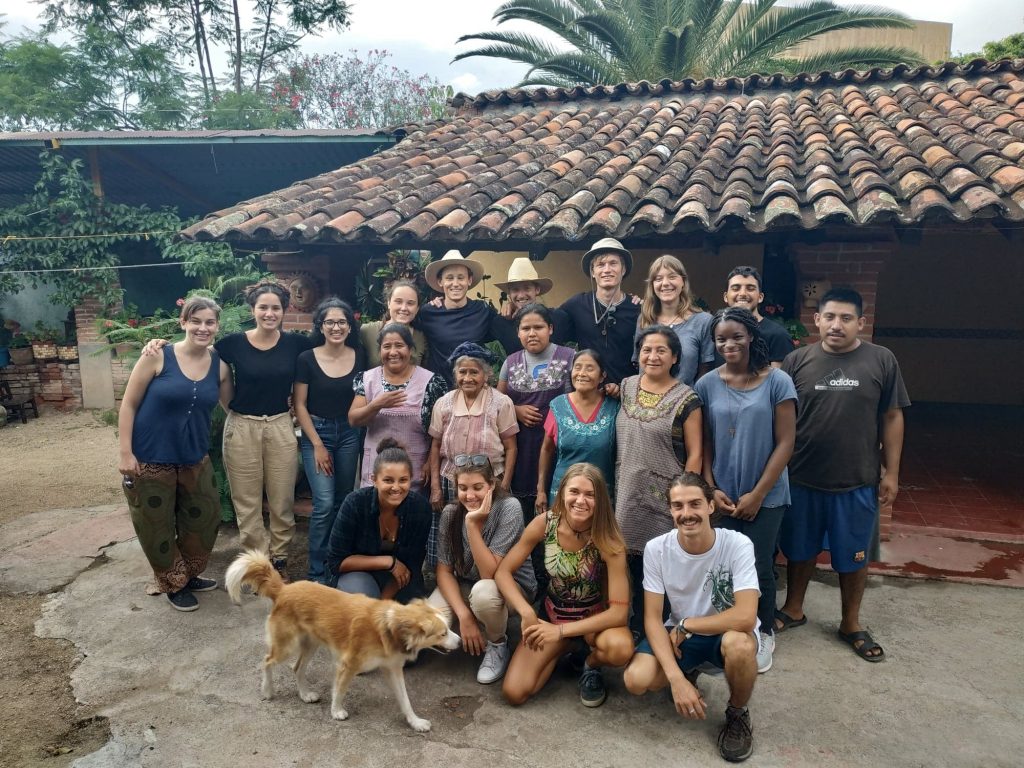
What did you do over the summer?
Over the summer I went on the Going Glocal 2 week program with other UCR students. The purpose of the course was to learn more about the indigenous community and their struggles for sovereignty from the Mexican government. The course took place in many villages around Mexico.
What did it teach you?
I learnt the truth of what it is like to be an indigenous person under oppression. I learnt why their land is so important to them and why community is the basis of everything they believe. In order to understand their community better, we got the opportunity to take part in cooking workshops as well as in their rituals such as the “Temazcal.” This type of ritual focuses on purifying your mental and physical self. By staying in the village we also got to see how the community was structured and organised. In the indigenous group there was no state nor an economy. Because of this, the process of contributing to community jobs was not transactional (i.e. no money in return), but rather a way to show consideration to the community. The overall experience taught me about our own world by being in contact with people with a different epistemology. In Western cities we are so adjusted to thinking about how to be successful and how to earn money, we forget that there are other realities to the ones we know. The program allowed me and others to restore my ability to dream of worlds that I could never have imagined.
How did you come across this opportunity?
I saw a flyer about the programme on Facebook (Welcome to UCR page) and decided to apply. I had to send in a motivational letter about why I was interested.
Would you recommend it to others?
Yes, 100 percent! It was a great experience and made me so much more aware of how I and other people live.
Andrea Undecimo, class of 2020, is an Anthropology and law major, from Macerata, Italy and Alisa Adams, class of 2021, is a Law and Politics major from Harare, Zimbabwe.
Ruben van den Akker on Interning and studying in the US
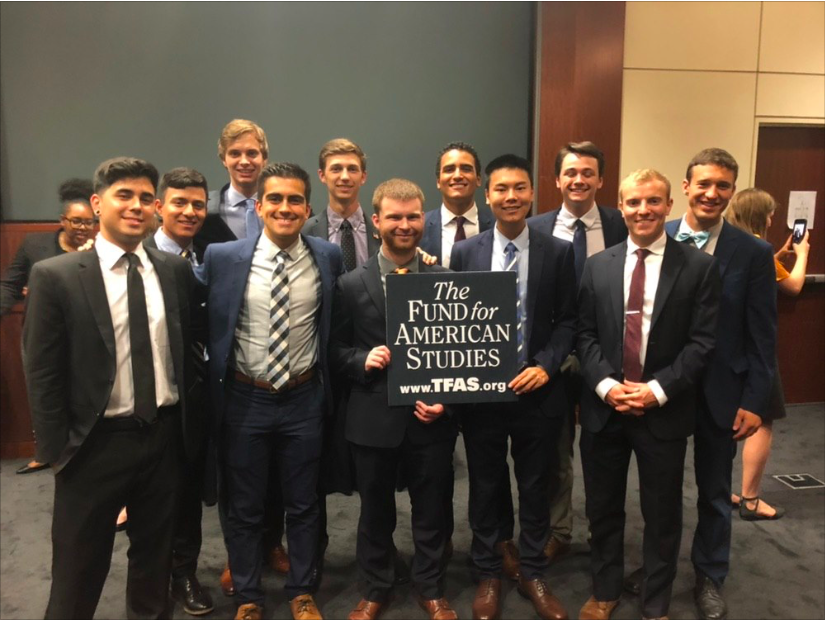
What did you do over the summer?
Last summer, I followed the two month Summer Internship Program from The Fund for American Studies (TFAS). The program consisted of an internship, summer courses, and many excursions. My internship was at the American Financial Services Association Education Foundation, where I worked four days a week. AFSAEF’s mission is to improve financial literacy in the United States. My main job was to update the online curriculum that is offered for free to schools and other interested parties. I also attended events around Washington DC representing the Foundation, even on Capitol Hill. Besides that, I took two courses at the George Mason University during the evening hours: one in Economic Problems in Public Policy and one in Ethics & Leadership. The class sizes were a little bit bigger than at UCR, with up to 90 people in a class. I especially liked the Leadership class as it contained a lot of practical advice from a managing partner at a DC law firm. With help from TFAS, I was also able to visit many places that usually are very difficult to enter. I went to the Federal Reserve, the White House, the World Bank, the U.S. Capitol, the State Department, and the Dutch and Japanese embassies.
What did it teach you and what was your experience?
I lived on the university campus in the middle of the city with 19 Americans. I also shared my room with someone, so the typical American campus experience. During the week, everything was really busy with all the things mentioned before, but in the weekends we used our time for sightseeing in DC. Of course, we also made sure to join or host the occasional dorm party for all the people that were not 21 yet. What I did not expect is that there is still quite some cultural differences between Americans and Dutch people/Europeans. Ranging from smaller things, such as not being able to cook because they were all used to dining halls at their college and 89 people saying “bless you” in a lecture hall when you sneeze and bigger things such as being very patriotic- my floormates had no clue how football (soccer) worked when I was watching it, but when the US Women’s team scored, they all went wild. After the program ended, I still travelled to New York City and Boston before I flew back.
How did you come across this opportunity and would you recommend it to others?
Two UCR alumni, who did the same program before, had sent an email to Professor Karas asking him to promote the opportunity to current students. He then forwarded it to me. I applied in the Christmas break and heard back a few weeks later. If you are a Dutch student, TFAS automatically forwards your application to the Netherlands America Foundation (NAF) who award five full scholarships to Dutch students in the program. I would definitely recommend the program to anyone interested! It brings you some job experience, an international network, and an unforgettable experience. It is mostly focused around politics and economics, but I do not think they set requirements for your major. If you have any questions about it free to send me a message!
Ruben van den Akker, Class of 2020, is an Economics and Politics major from Zoetermeer, the Netherlands.
If you have a story about your summer story that you would share then it is not too late! Send me an email: [email protected]
Edited by Anja Herrmann, Class of 2021, a Politics and Human Geography major from Hong Kong, China.

